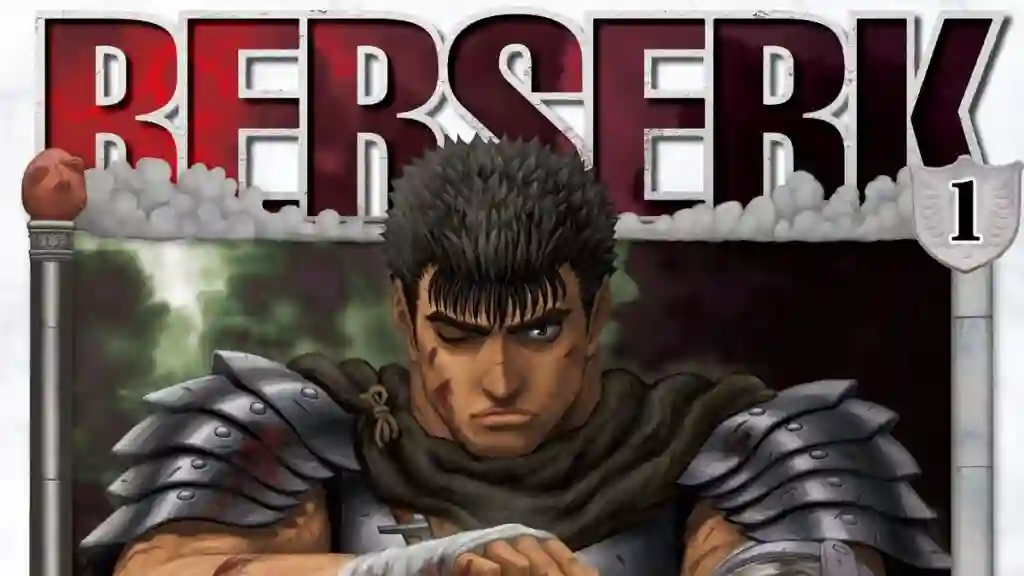Kentaro Miura’s Berserk is a dark fantasy epic that seamlessly weaves elements of horror, tragedy, and supernatural intrigue. Central to the series are the enigmatic and malevolent entities known as the God Hand and Apostles. In this article, we embark on a journey to unravel the mythology behind Berserk’s supernatural entities, exploring the rich tapestry of inspiration that infuses these dark and otherworldly beings.
The God Hand: A Cosmic Pantheon of Demons:
At the heart of Berserk’s supernatural mythology stands the God Hand, a pantheon of demonic entities that govern the destiny of the series’ world. The God Hand’s members—Void, Slan, Ubik, Conrad, and Femto—are inspired by a fusion of mythological, occult, and philosophical sources.
Void, resembling a spectral face within a swirling vortex, draws parallels to cosmic horror and eldritch beings found in the works of H.P. Lovecraft. The concept of an all-encompassing, god-like entity transcending conventional understanding finds its roots in Lovecraftian mythology, infusing Berserk with an existential dread and cosmic horror that extends beyond the mortal realm.
The names of the God Hand members themselves echo a blend of occultism and symbolism. Void’s name implies emptiness and the void between worlds, while Slan, Ubik, Conrad, and Femto carry associations with historical and philosophical concepts. This synthesis of mythological elements creates a pantheon that is both unique to Berserk and resonant with broader cultural and literary traditions.
Apostles: Horrific Metamorphoses and Mythic Inspirations:
Apostles in Berserk are humans who have undergone a horrific transformation into demonic entities, often in exchange for a Faustian bargain with the God Hand. The mythology behind these Apostles draws inspiration from a diverse array of cultural and mythic sources.
Many Apostles in Berserk bear resemblances to creatures from various mythologies. From grotesque humanoid forms to more abstract and surreal designs, Miura infuses the Apostles with a nightmarish quality that echoes the monstrous entities found in global folklore. The diversity of these monstrous forms reflects the universality of the fear of the unknown and the grotesque.
The concept of Faustian bargains and demonic transformations has deep roots in Western folklore and literature. The idea that individuals willingly or unwittingly enter into pacts with dark forces in exchange for power or desires fulfilled has been a recurring motif in mythology, notably popularized by the German legend of Faust. In Berserk, this theme takes on a visceral and horrifying manifestation as characters undergo grotesque metamorphoses into Apostles.
Eclipse and Sacrifice: A Nod to Classical Themes:
The Eclipse, a cataclysmic event in Berserk, draws inspiration from classical themes of sacrifice and ritualistic transformation. The concept of an eclipse as a cosmic event with profound consequences has roots in various mythologies, often associated with omens, portents, and divine intervention.
The sacrificial ritual during the Eclipse, where members of the Band of the Hawk are offered in exchange for demonic power, echoes motifs found in ancient myths and rites. The idea of sacrificing one’s comrades for personal gain is a recurring theme in mythology, representing a desperate and often morally dubious quest for power or divine favor.
Miura’s interpretation of these classical themes adds a layer of existential horror to the narrative, as characters are thrust into a nightmarish scenario where their fates are irrevocably altered through a malevolent cosmic ceremony.
The Idea of Fate and Causality: An Existential Thread:
Berserk’s supernatural entities are intrinsically tied to the philosophical concept of fate and causality. The God Hand, particularly the enigmatic Void, serves as a representation of a predetermined and inescapable destiny. This existential thread in Berserk explores the idea that individuals are bound by forces beyond their control, and their choices are ultimately guided by an unseen hand.
The notion of a predetermined fate, often explored in Greek mythology and classical literature, finds a dark resonance in Berserk. Characters grapple with the idea that their destinies are manipulated by supernatural entities, and the struggle against this preordained path becomes a central theme, imbuing the narrative with a sense of cosmic inevitability.
Influence of Occult and Esoteric Traditions:
Berserk’s supernatural entities are steeped in occult and esoteric symbolism. The symbolism of the God Hand, the Behelit, and the astral plane draws inspiration from various occult traditions, adding layers of hidden meaning to the narrative.
The Behelit, a key element in the transformation of humans into Apostles, resembles occult talismans and artifacts used in rituals. The concept of an astral plane, where supernatural entities reside, aligns with esoteric traditions that explore hidden dimensions beyond the visible world.
Miura’s meticulous incorporation of occult symbolism adds a depth of mysticism to Berserk, inviting readers to explore hidden meanings and connections within the narrative.
Conclusion:
In the dark and complex world of Berserk, the supernatural entities stand as a testament to Kentaro Miura’s genius in weaving together a rich tapestry of mythic inspiration. From the Lovecraftian horrors of the God Hand to the Faustian bargains of the Apostles, Berserk draws on a diverse range of cultural, literary, and philosophical sources to create a narrative that transcends traditional genre boundaries.
The mythology behind Berserk’s supernatural entities invites readers to delve into the universality of human fears, desires, and existential questions. As characters navigate the nightmarish landscapes of Berserk, they confront the echoes of classical myths, occult symbolism, and existential dread—a testament to the enduring power of mythic inspiration in the dark fantasy epic.














